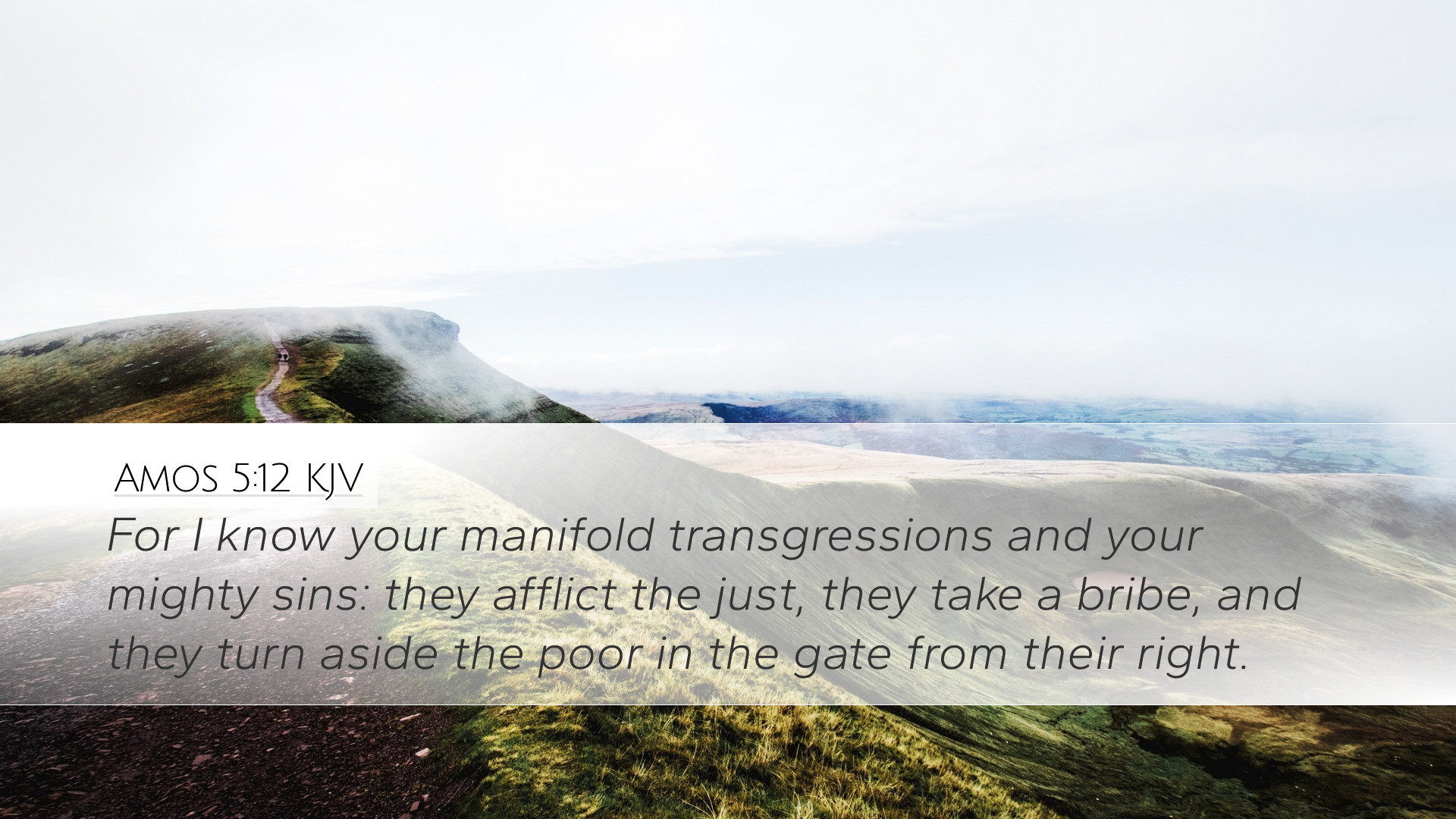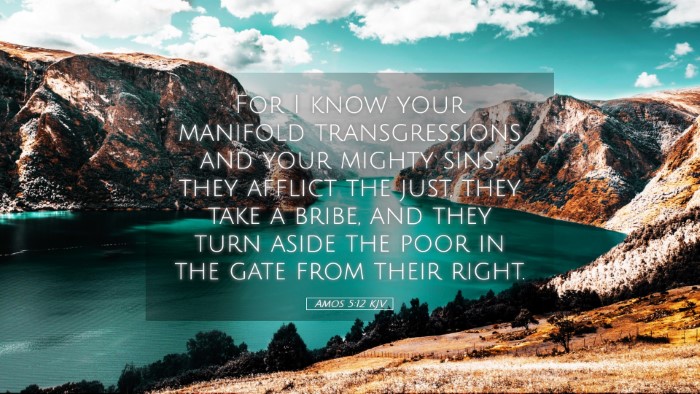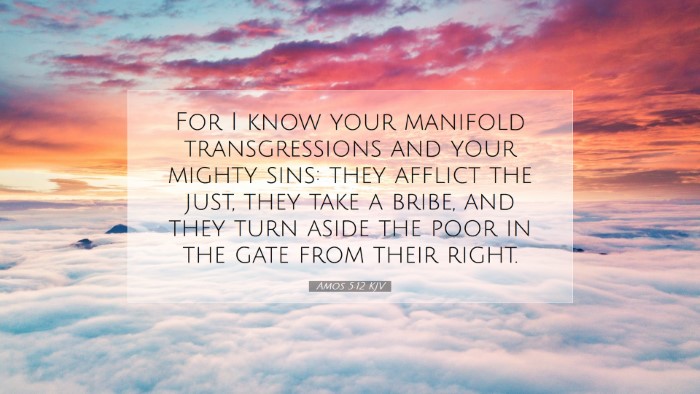Old Testament
Genesis Exodus Leviticus Numbers Deuteronomy Joshua Judges Ruth 1 Samuel 2 Samuel 1 Kings 2 Kings 1 Chronicles 2 Chronicles Ezra Nehemiah Esther Job Psalms Proverbs Ecclesiastes Song of Solomon Isaiah Jeremiah Lamentations Ezekiel Daniel Hosea Joel Amos Obadiah Jonah Micah Nahum Habakkuk Zephaniah Haggai Zechariah MalachiAmos 5:12
Amos 5:12 KJV
For I know your manifold transgressions and your mighty sins: they afflict the just, they take a bribe, and they turn aside the poor in the gate from their right.
Amos 5:12 Bible Commentary
Commentary on Amos 5:12
Amos 5:12 reads: "For I know your manifold transgressions, and your mighty sins: they afflict the just, they take a bribe, and they turn aside the poor in the gate." This verse encapsulates a profound indictment of social injustices and the moral decay prevalent among the people of Israel during Amos’s ministry. The insights from various public domain commentaries help elucidate the richness of this passage.
Contextual Analysis
To understand Amos 5:12, one must consider the broader socio-political context of Israel during the 8th century BC. The text addresses the people who had become complacent in their wealth and power, neglecting divine justice.
Insights from Commentators
Matthew Henry
Margin of Sinfulness: Henry emphasizes God’s omniscience, stating that He is acutely aware of the people's "manifold transgressions." He notes that sins are often compounded in a society engaged in systemic wrongdoing. This multiplicity of sin not only reflects individual failings but also collective moral failures.
Afflicting the Just: He extends his commentary by discussing how injustices are often enacted upon the righteous. The phrase "they afflict the just" suggests a deliberate oppression of those who are morally upright, showcasing the inversion of justice in society.
Albert Barnes
Nature of Injustice: Barnes elaborates on "mighty sins," interpreting this as a reference to significant, egregious acts of injustice. He details that the taking of bribes is a profound sin that corrupts leaders and legislators, undermining the very fabric of social order.
The Poor's Plight: Barnes highlights the plight of the poor, indicating that their suffering is often overlooked by those in positions of power. The "gate" serves as a symbolic location for justice, where legal matters were settled, underscoring the importance of fairness and equity in governance.
Adam Clarke
Knowledge of God: Clarke points out God’s intimate knowledge of human actions, reinforcing the idea that no sin is hidden from divine scrutiny. This knowledge calls for societal introspection and repentance.
Bribery and Corruption: He also emphasizes the corrosive effect of bribery, asserting that it distorts justice and perpetuates societal inequities. Clarke remarks that such practices lead to a breakdown of trust within the community.
Underlying Theological Themes
- Divine Justice: The call for justice resonates throughout the Old Testament, and Amos serves as a prophetic mouthpiece highlighting God's disdain for corrupt practices.
- Social Responsibility: The text invokes a sense of accountability, not only to God but also to one another. Each individual within the community has a role to play in upholding justice.
- God's Judgment: Amos warns that divine knowledge of sin will lead to judgment if repentance does not occur, illustrating a core principle of prophetic literature.
Relevance for Today
For contemporary readers—pastors, students, theologians, and scholars—Amos 5:12 serves as a reminder of the ongoing need for justice in our communities. This passage encourages serious reflection on personal and societal actions that may contribute to injustice against the vulnerable.
Call to Action: The enduring message from Amos is one of awakening. It implores the faithful to address systemic injustices within their spheres of influence—to be advocates for the oppressed, champions of righteousness, and reformers of corrupt systems.
Conclusion
In summation, Amos 5:12 is a timely and timeless verse that sheds light on the moral conditions of society and challenges believers to engage in the pursuit of justice. Through the wisdom of historical commentators like Matthew Henry, Albert Barnes, and Adam Clarke, we glean insights that not only apply to the ancient world but also resonate powerfully in our current social context.


